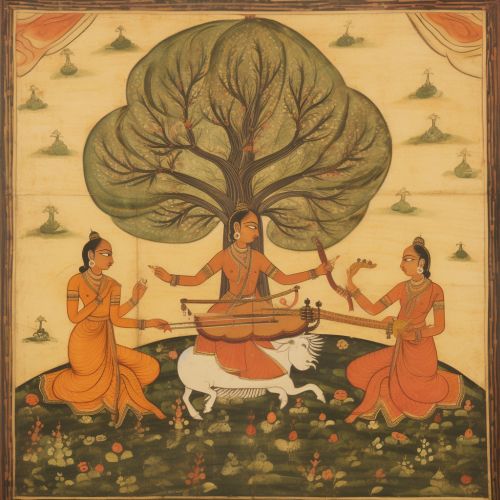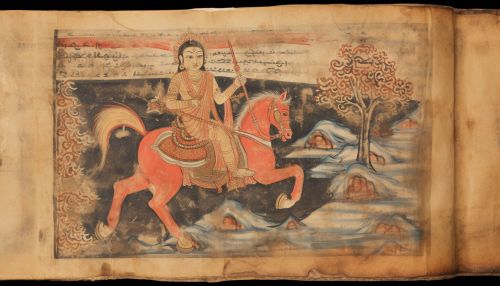Nirukta
Introduction
Nirukta (निरुक्त) is the Sanskrit discipline of etymology and one of the six auxiliary disciplines known as the Vedangas, which support the study of the Vedas. It is a branch of linguistics that focuses on the explanation of difficult words, particularly those found in the ancient Indian texts. The term 'Nirukta' itself is derived from the root 'nir + uc', meaning 'to utter distinctly or explain'. The discipline is traditionally attributed to Yaska, an ancient Indian grammarian, who composed the foundational text of Nirukta, the 'Nirukta of Yaska'.
Historical Context
The study of Nirukta can be traced back to the later Vedic period, around the 5th to 4th century BCE. It was during this time that the earliest known text of Nirukta, the 'Nirukta of Yaska', was composed. Yaska, the author, was a predecessor of Panini, another renowned ancient Indian grammarian. Yaska's Nirukta is considered the oldest of all Indian linguistic treatises, predating even Panini's 'Ashtadhyayi'.


The 'Nirukta of Yaska' is a commentary on the 'Nighantu', which is a glossary of Vedic words. The Nighantu is divided into three sections: Naighantuka, Naigama, and Daivata. The Naighantuka contains synonyms, the Naigama contains words related to humans and their activities, and the Daivata contains words related to deities and sacrifices. Yaska's Nirukta provides explanations for these words, their meanings, and their usage in the Vedic context.
Principles and Methodology
The methodology of Nirukta involves a systematic approach to the analysis of words. It includes the application of phonetic and morphological analysis to derive the meaning of words. This is done by breaking down complex words into their root forms and then studying the roots to understand the meaning.
Nirukta also involves the study of the context in which a word is used. This is because the meaning of a word can change depending on the context. For example, the word 'yajna' can mean 'sacrifice' in one context and 'worship' in another. Therefore, understanding the context is crucial in Nirukta.
Nirukta also recognizes the importance of tradition (Aithiha) in understanding the meaning of words. According to Yaska, words acquire meaning from the way they are used in the society and the tradition. Therefore, the study of tradition is also an important aspect of Nirukta.
Significance
The study of Nirukta is significant for several reasons. Firstly, it aids in the understanding of the Vedas, which are the foundational texts of Hinduism. The Vedas contain many complex and archaic words that are difficult to understand without the aid of Nirukta. Therefore, the study of Nirukta is essential for anyone seeking to understand the Vedas.
Secondly, Nirukta is also significant for the study of the Sanskrit language. It provides insights into the structure and evolution of the language. It also aids in understanding the semantic shifts that have occurred in the language over time.
Thirdly, Nirukta is also significant from a cultural and historical perspective. It provides insights into the society and culture of the Vedic period. It also aids in understanding the evolution of Indian thought and philosophy.
